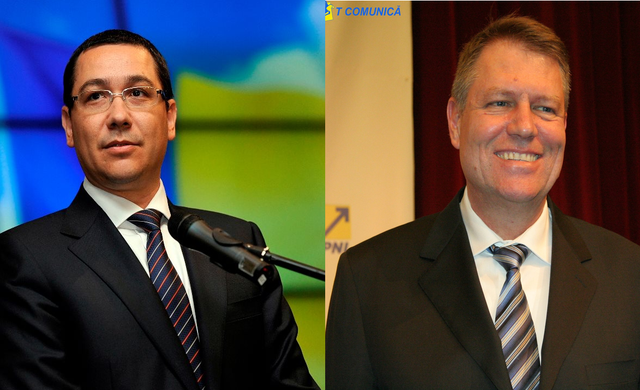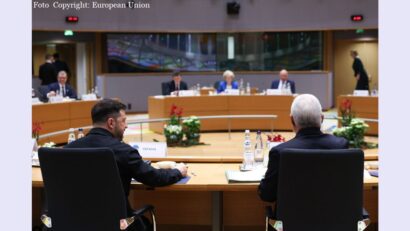Presidential elections in Romania enter final lap
Leftist Victor Ponta, with 40.44% of the votes in the first round of elections and rightist Klaus Iohannis, with 30.37%, are left competing in the race for the presidential seat. Voters will have their say next Sunday.

Ştefan Stoica, 10.11.2014, 14:20
The competition for the presidential seat in Romania is a far cry from the electoral disputes of the past, in spite of the fact that the stake is the same. The political profile of today’s candidates is very different from that of former candidates, and critics might say it is also inferior, whether we speak about the confrontation between Ion Iliescu and Emil Constantinescu, or that between Adrian Nastase and Traian Basescu.
This is one of the reasons why this year’s elections are far from trigeering off passions. Then a direct confrontation between Klaus Iohannis and Victor Ponta is likely not to be held. The candidates’ campaign teams have not reached a compromise regarding the host of the debate and are accusing each other of sabotage and of secretly avoiding a face-to-face confrontation. And it’s almost insane that instead of debating the two candidates’ projects for the country, we’re debating the debate itself.
Another sensitive issue of the election campaign, emerged after the first round, was generated by the numerous flaws in the elections’ organization abroad, which prevented many Romanians from casting their vote. People were unhappy with the complicated voting procedures and the small number of polling stations and staged protests both at home and abroad.
The election campaign for the second round run-off has, however, several typically Romanian features. Among them are ungrounded accusations and uncensored attacks by both sides. The Romanian left-wing, for instance, has launched the idea that Klaus Iohannis is trying to dismantle the country, a type of accusation included in the electoral campaigns of the 1990s. The right-wing, in its turn, is depicting Victor Ponta as the man who will increase taxes and reintroduce progressive taxation in 2015.
The only natural behavior, under the circumstances, is the setting up of ah-hoc alliances, aimed at increasing the candidates’ chances. Prime Minister Ponta, representing the alliance made up of the Social Democratic Party, the National Union for the Progress of Romania and the Conservative Party, has gained the support of several candidates in the first round. Among them is the former Liberal PM Calin Popescu Tariceanu, two representatives of the populist current, Corneliu Vadim Tudor and Dan Diaconescu and the former Foreign Intelligence Service chief, Teodor Melescanu.
The candidate of the Christian Liberal Alliance, Klaus Iohannis, has chosen not to trade votes. Even so, the only two women who ran for president in the first round of elections, the former Justice Minister Monica Macovei and the People’s Movement party leader, Elena Udrea, both representing the right wing, have asked their voters not to support Victor Ponta. In its turn, the Democratic Union of Ethnic Hungarians in Romania, part of the current government coalition, have urged their supporters to vote their minds. Nevertheless, none of those who support one candidate or the other can guarantee their supporters will take their advice. Under the circumstances, convincing the undecided ones to vote in the second round might be the key to winning the elections.






























